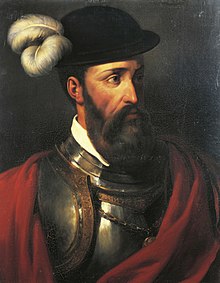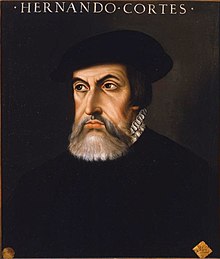We have no problem sharing the day with the indigenous peoples, but to throw Columbus over the bow does not sit right with us. If it were not for him, we would not be on this hallowed ground today.
Christopher Columbus was not a Conquistador. He was an explorer under the charge of Spain. Unwittingly, the diseases he brought were responsible for the deaths of many indigenous peoples, but that is not to say he murdered them with the sword.
Tards say that we were responsible for the murder of millions of indigenous peoples. They should get their facts straight,
However, who is “WE?” “WE” is the Conquistadors, the Herman Cortez‘s, the Pizarros, the conquerors of the New World. The Conquistadors were responsible for wiping out the Aztecs and Incas empires. See below
SPAIN AND PORTUGAL WERE THE KILLER STATES.
The Latino Hispanic communities heredity can consist of a portion of Spanish, Portuguese and Italian blood including that of the Aztecs, Mayans and indigenous Tiano peoples. Columbus, of Italian heritage, from what has been written, landed in Bahamas and then visited Cuba and Hispaniola which is now Haiti. The islands were inhabited by the indigenous Taino people who were almost completely decimated by the diseases brought about by Columbus and Cortez.
The anniversary of Columbus’s 1492 landing in the Americas is usually observed on 12 October in Spain and throughout the Americas, except Canada. In Spain it is called the Fiesta Nacional de España y Día de la Hispanidad commemorating the role of Spain in world history, while a number of countries in Latin America celebrate it as Día de la Raza commemorating their common heritage. In the United States it is called Columbus Day and is observed annually on the second Monday in October. It was promoted by Italian-Americans to place themselves as part of the history of the U.S. among discrimination against Italians and Catholics. There are efforts in the U.S. to rename Columbus Day to Indigenous Peoples’ Day.
After arrival in the West Indies in 1492, the Spanish, usually led by hidalgos from the west and south of Spain, began building an American empire in the Caribbean using islands such as Hispaniola, Cuba, and Puerto Rico as bases. From 1519 to 1521, Hernán Cortés waged a campaign against the Aztec Empire, ruled by Moctezuma II. From the territories of the Aztec Empire, conquistadors expanded Spanish rule to northern Central America and parts of what is now the southern and western United States, and from Mexico sailing the Pacific Ocean to the Philippines. Other conquistadors took over the Inca Empire after crossing the Isthmus of Panama and sailing the Pacific to northern Peru. As Francisco Pizarro subdued the empire, in a manner similar to Cortés, other conquistadores used Peru as a base for conquering much of Ecuador and Chile. Central Colombia, home of the Muisca was conquered by licentiate Gonzalo Jiménez de Quesada, and its northern regions were explored by Rodrigo de Bastidas, Alonso de Ojeda, Juan de la Cosa, Pedro de Heredia and others. For southwestern Colombia, Bolivia, and Argentina, conquistadors from Peru combined parties with other conquistadors arriving more directly from the Caribbean and Río de la Plata–Paraguay respectively. All these conquests founded the basis for modern Hispanic America and the Hispanophone.
Spanish conquistadors also made significant explorations into the Amazon Jungle, Patagonia, the interior of North America, and the discovery and exploration of the Pacific Ocean. Conquistadors founded numerous cities, some of them in locations with pre-existing settlements, Manila and Mexico City.
Conquistadors in the service of the Portuguese Crown led numerous conquests for the Portuguese Empire across South America and Africa, as well as commercial colonies in Asia, founding the origins of modern Portuguese-speaking world in the Americas, Africa, and Asia. Notable Portuguese conquistadors include Afonso de Albuquerque who led conquests across India, the Persian Gulf, the East Indies, and East Africa, and Filipe de Brito e Nicote who led conquests into Burma.



